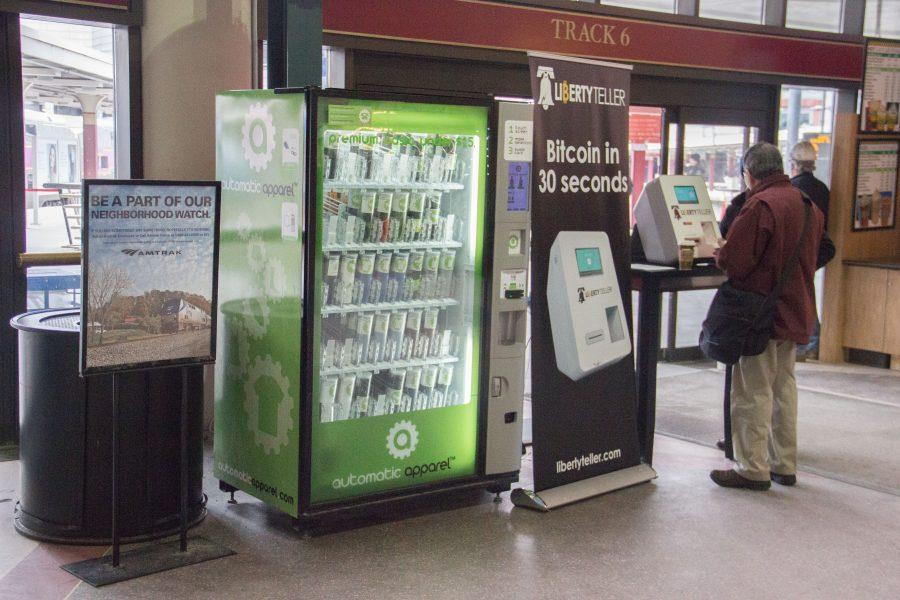A new bitcoin ATM just opened up at South Station, Boston, bringing with it an unabashed libertarian agenda. If Bostonians were still wondering whether Bitcoin was really a thing, or just a fad that would fade away, well I think now we have our answer.
Bank of America even declared in a recent statement that the currency could become “a major means of payment for e-commerce,” the pertinent question on everybody’s lips is: is this good for Boston? On a larger scale, is it good for any participating economy? I submit that it in fact is not.
Bitcoin is a relatively new currency that was created in 2009 by an anonymous person going by the alias of Satoshi Nakamoto. According to the official bitcoin website, here’s how it works: the pseudo-currency is created through a process called “mining”. Mining is the process of creating new bitcoins by carrying out progressively harder mathematical operations used to explore the bitcoin space. Operations include things like calculating ever increasing prime numbers. It is not easy to create bitcoins, — they are created at a rather predictable and decreasing rate– hence bitcoins in circulation are limited.
On the surface, it can be argued that bitcoin is gaining popularity simply because there are numerous detractors of the current global economic system’s reliance on fiat currencies. In layman terms, bitcoin is hipster money.
Looking deeper, there are obvious sociopolitical agendas behind the creation of bitcoin– It looks like it was created for the main purpose of destabilizing the present norm of centralized banking and taxation. Being completely digital and almost a hundred percent unregulated, a bitcoin user does not need a bank account or anything of the sort to send or receive the currency. It severely undermines the ability of federal and state governments to collect tax or even monitor financial operations of individuals.
Predictably, bitcoin users have come under a lot of criticism. To be fair, the system does have its fair share of shady qualities. For instance, the currency is specifically designed to be untraceable. That feature makes it a heaven send for drug dealers, money launderers, and their ilk.
Other members of the anti-bitcoin league will point to the fact that it is basically an online, digital, less tangible version of gold. They will claim that bitcoin excites them for the same reasons that gold does. It is certainly is a speculation heavy market. According to Nicholas Colas of the ConvergEx group, 90 percent of bitcoin purchases are made due to speculation. In other words, it’s a bubble, and that’s certainly not a good thing.
Bitcoin is certainly no stranger to price volatility and unprecedented peaks and valleys, and this is partly due to its bubble like nature. A year ago it was priced at about $30, before skyrocketing to $260 per bitcoin in the course of a few months.
Inevitably, the cryptocurrency crashed in April, 2013. By the end of January, 2014, the price was standing at around $850, when just months earlier in November, 2013, it was valued at around $1245 per bitcoin before falling to $550 in december of the same year. Bitcoin is currently priced at around $571.
With the bubbles and busts associated with it, as well as its lack of regulation causing it to be a useful tool for criminals, it should come as no surprise then that the federal government is keeping a close eye on the cryptocurrency. The calls for enhanced regulation of the digital currency are growing ever louder.
While some may see it as an ideal currency due to its distance and independence from the predatory-like mannerisms of the global banking system, thus escaping those pesky transaction fees banks are so fond of, others simply view it as a means to stick it to “the man.”
Regardless of how you see it, the fact remains that bitcoin is an extremely volatile bubble which serves as a magnet for speculators. Let’s not forget what happened the last time speculation was rife in the economy.





















































